If you can't get a grip on dandruff, here's how experts say it should be treated
Itchy scalp getting you down?

A quick search on dandruff pulls up 117 million hits, so it’s no wonder that getting solid, expert-led advice is tricky. The common condition—with 50% of the global population experiencing it at some point in their lives—causes an itchy, flaking scalp, often more noticeable on darker coloured hair. This can make many people feel incredibly self-conscious and it’s important to note that dandruff has nothing to do with one's cleanliness.
The good news is, there’s plenty you can do at home to help minimise flakes and prevent dandruff from occurring (first of all, make sure you know how to properly wash your hair). We’ve called in the help of Dr Mia Jing Gao who is a consultant dermatologist at the Cadogan Clinic and has a specialist interest in hair loss and scalp conditions, to break down what you need to know and roundup some of the best dandruff-busting products out there.
What is dandruff?
Starting with the basics, what exactly is dandruff? “Dandruff is a very common scalp condition where small scaly flakes of skin are shed from the scalp; it is a mild form of seborrheic dermatitis,” explains Dr Gao. Dandruff commonly refers to general scalp flaking and severity varies from person to person. “The cause is multifactorial but we know overgrowth of the natural yeast found in our scalps plays a role, and things such as stress, our immune system, and heat can also contribute,” she adds. Also noting that “although it is a benign condition it can cause social anxiety,” as well as issues with self-esteem across the board, despite age and gender.
What causes dandruff?
The condition is actually caused by an overproduction of a yeast naturally found on the scalp, which is called malassezia furfur. “When levels rise, skin cells on the scalp divide too rapidly. Cells are replaced much faster than they can be shed, leading to a buildup of telltale flakes and itching,” says Anabel Kingsley, brand president and consultant trichologist at Philip Kingsley.
Although dandruff is often described as long-term and chronic, you can get a handle on it and prevent it from worsening. Periods of stress and changes in hormone levels are just a couple of reasons your dandruff might get worse from time to time. Cold weather can also exacerbate dandruff symptoms.
Dandruff vs dry scalp: what's the difference?
A common misconception is that dandruff causes dry scalp flakes, but dandruff is a condition where the flakes are actually caused by oil, this is why they can appear more yellow and tend to look a little bigger than dry scalp. “Dandruff flakes can also be slightly sticky and yellow in colour, whereas a dry scalp will produce dry and white flakes,” says Kingsley.
A dry scalp is a lack of moisture on the most part, these tend to be more white and a little smaller in size. “Dry scalp is where the scalp lacks sebum and oil, this scalp might feel tight and sometimes irritated,” says Dr Gao.
Marie Claire Newsletter
Celebrity news, beauty, fashion advice, and fascinating features, delivered straight to your inbox!
How to treat dandruff
There are a few things you can do to minimise dandruff. The first is using dandruff-specific shampoos. “In most cases, dandruff can be effectively treated with medicated shampoos containing anti-yeast ingredients such as ketoconazole, salicylic acid, coal tar, or zinc pyrithione,” explains Dr Gao. You should be shampooing regularly to lift away those dead skin cells, “sometimes alternating between dandruff shampoos with different active ingredients can be helpful,” she adds.
Kingsley also recommends keeping styling product use to a minimum, so as not to aggravate a sensitive scalp. Although there are a lot of fancy products on the market, your scalp will thank you for keeping your routine simple and relatively boring (although there are lots of stylish dandruff-specific products out there now!) until your flakes are under control. After that, you can start slowly introducing new products.
The dandruff treatments you should avoid
Now onto treatments you shouldn’t try because sadly, there are a lot of them. One of which being a TikTok trend applying glycolic acid directly on the scalp as a dandruff treatment. “Glycolic acid is an alpha hydroxy acid (AHA) and is beneficial for exfoliating and removing dead skin cells. However, I recommend caution when repurposing skincare products to use on your scalp as the formulation may not be suitable for the scalp,” says Dr Gao. “The worst case scenario would be if someone used a very high strength AHA which could cause scalp irritation or even a chemical burn,” she adds. So, stick to the approved formulas on the supermarket shelves and see an expert if that’s not shifting the problem.
When does dandruff need professional input?
Although there's a lot you can do at home, it’s always important to know when expert advice is necessary. “If dandruff is having a negative impact on your emotional wellbeing or causing social anxiety, then seek professional input,” says Gao. In addition to this, if you’ve not had an improvement in symptoms after using over-the-counter treatments, you might want to seek help from a medical professional.
Dandruff treatments to have on your radar
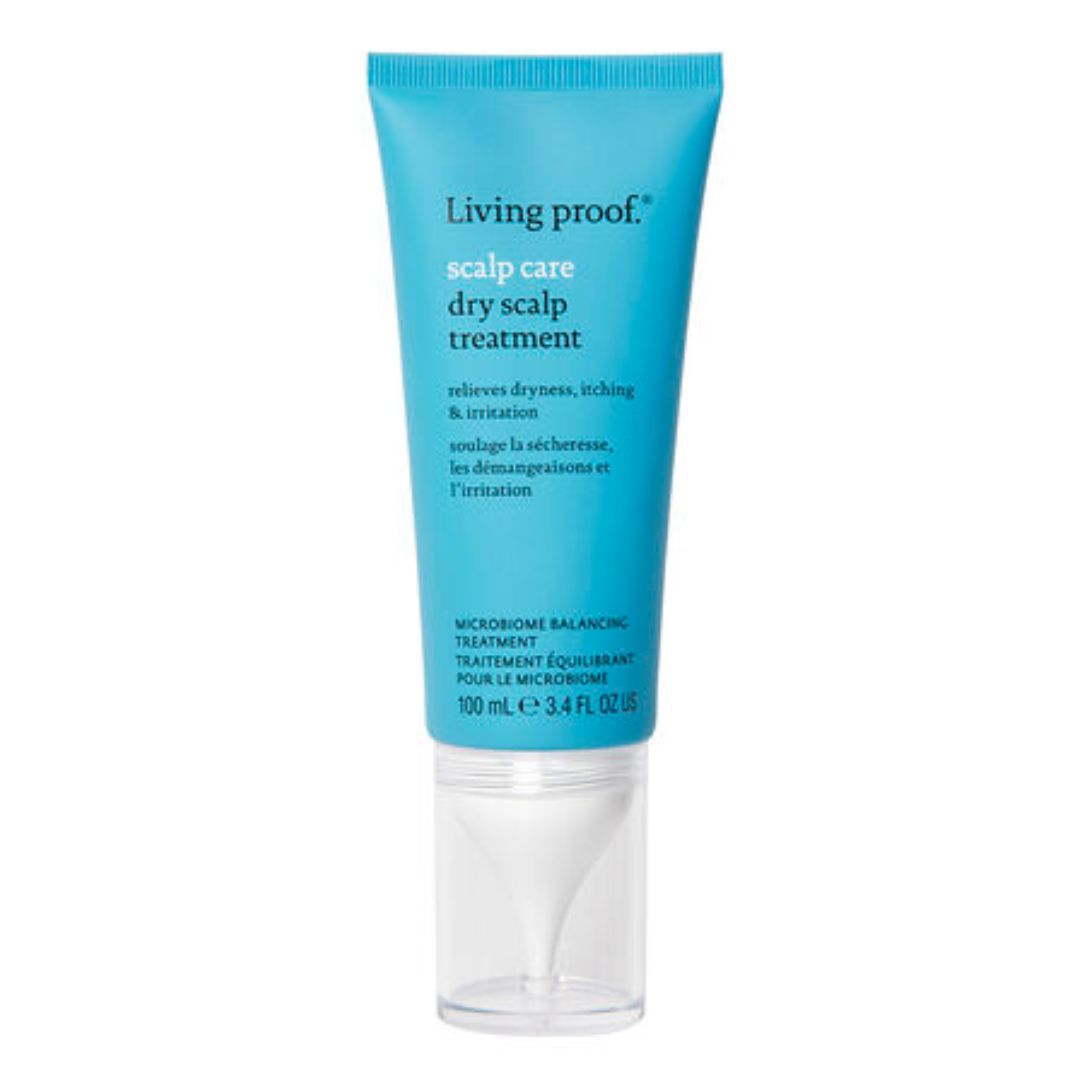
This innovative product is a first from Living Proof and promises to soothe dry, flaky, and irritated scalps. It features a hyaluronic-acid-based molecular patch, which floods the scalp with instant and sustained hydration, as well as a vitamin B complex that rebalances the scalp for long-lasting relief. If your scalp is itching beyond belief, this is going to soothe instantly—trust us.
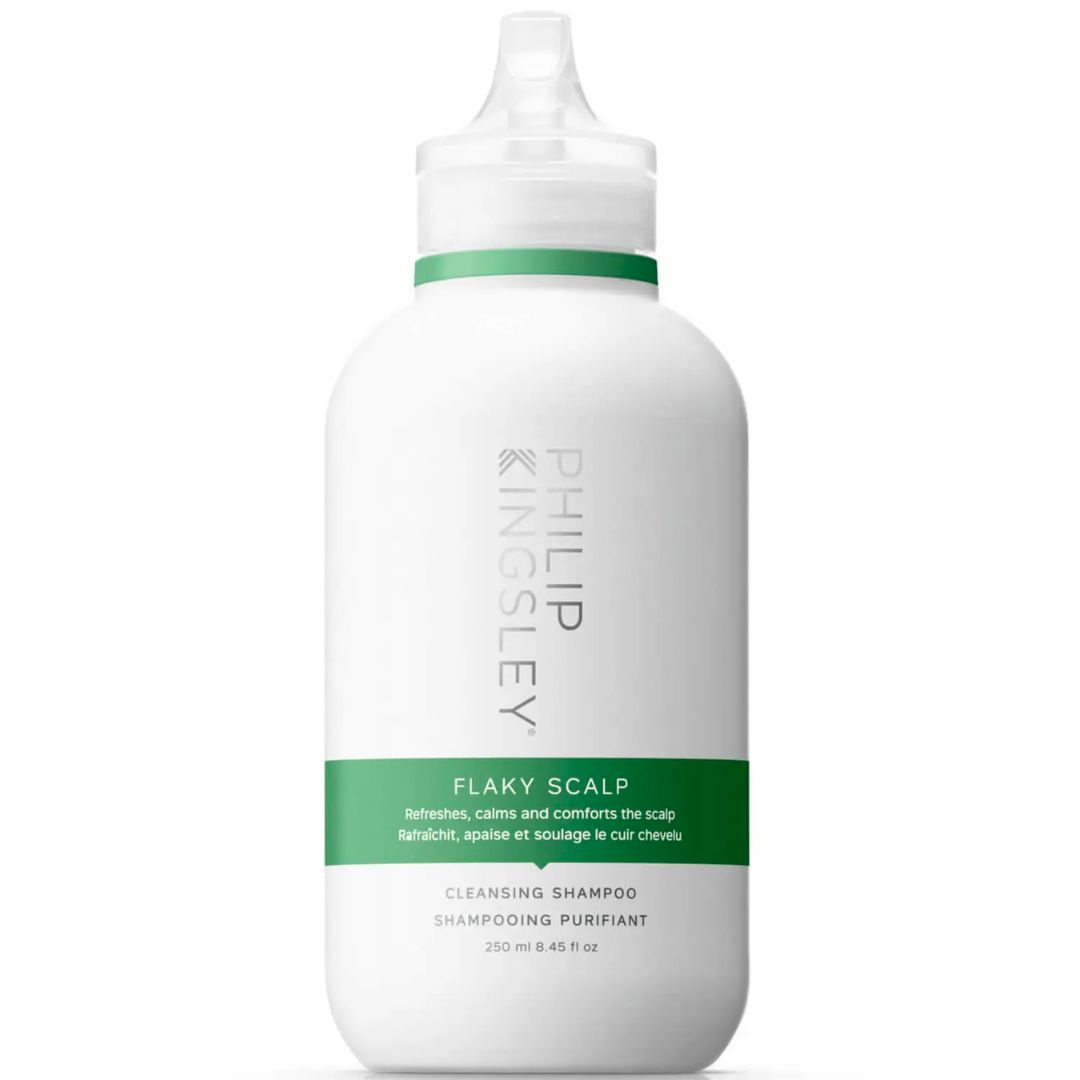
The Philip Kingsley team knows their stuff when it comes to bothersome scalps, so we trust this shampoo and know it works. The ingredients list includes antimicrobial piroctone olamine to tackle the source of dandruff, and cooling camphor, which reduces inflammation leading to worsened dandruff. Plus, it's a real treat to use and doesn't feel like a medicinal dandruff product.
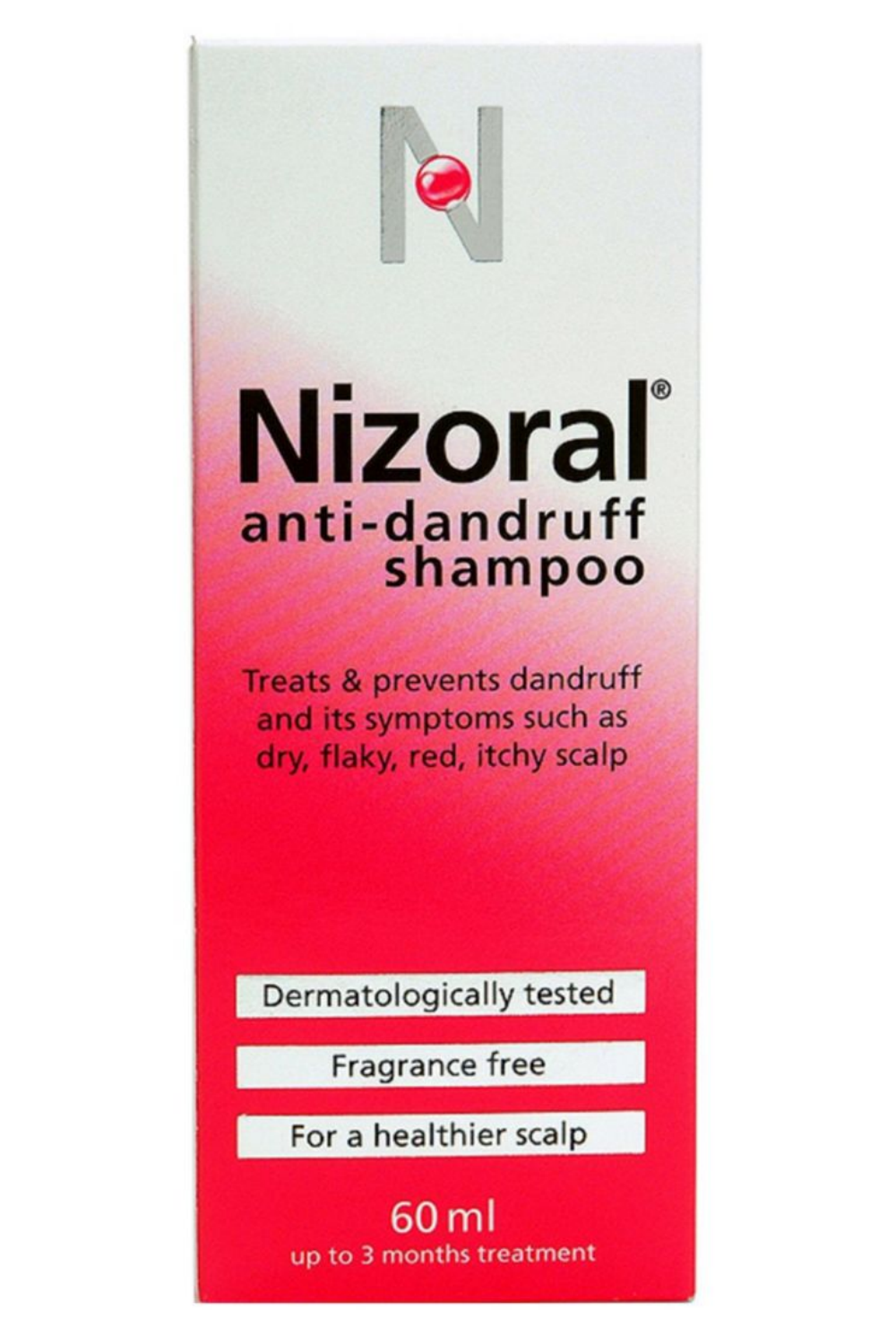
This hard-hitting medicinal treatment shampoo works by targeting the underlying cause of dandruff for long-lasting efficacy. This formula gets to work fast and is even suitable for many sensitive scalps. This is the only over-the-counter product containing ketoconazole, which is a great antifungal working to target the root cause of dandruff.
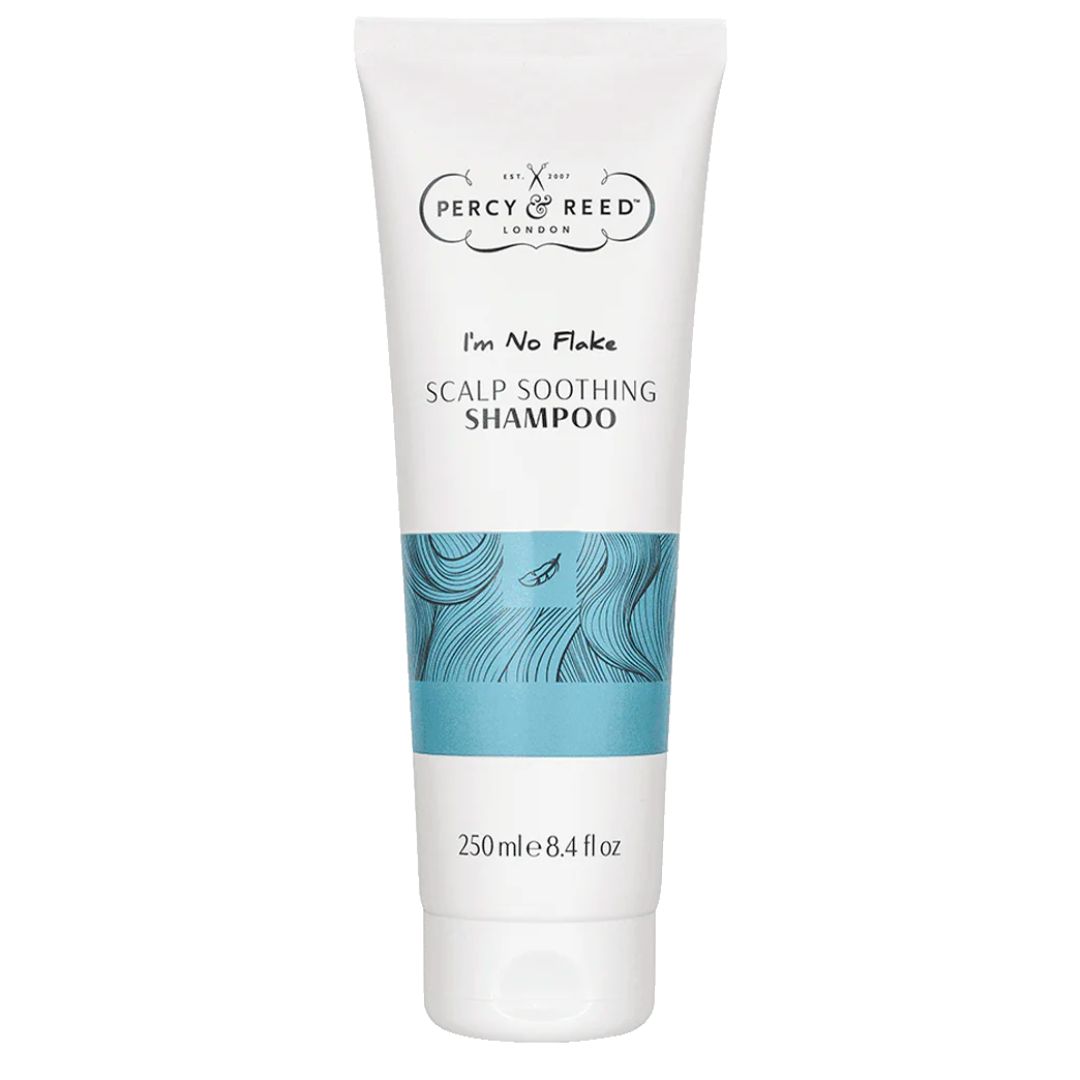
If your dandruff is on the mild end of the scale then we really like the Percy and Reed I'm No Flake shampoo. Designed to target itchy, uncomfortable scalps and prevent further dandruff from occurring thanks to dandrilys in the formula, which is a natural alternative to zinc pyrithione, it's a winner.
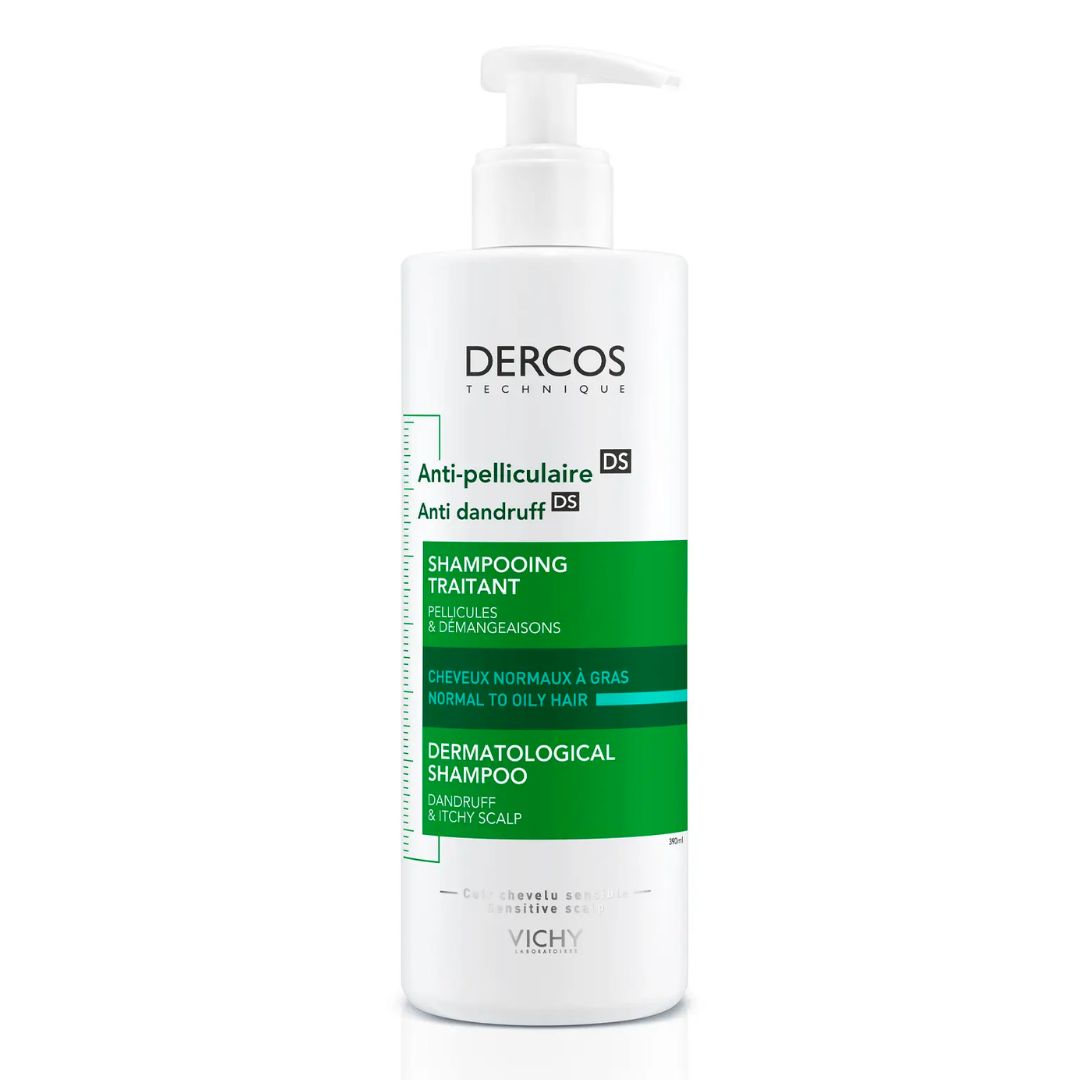
We can always count on Vichy to create effective formulas for our faces and the same can be said for our scalps. This is an excellent dandruff option if you have particularly greasy hair that is also irritated thanks to selenium ds, which minimises the flaking and ceramides, therefore soothing the irritation.
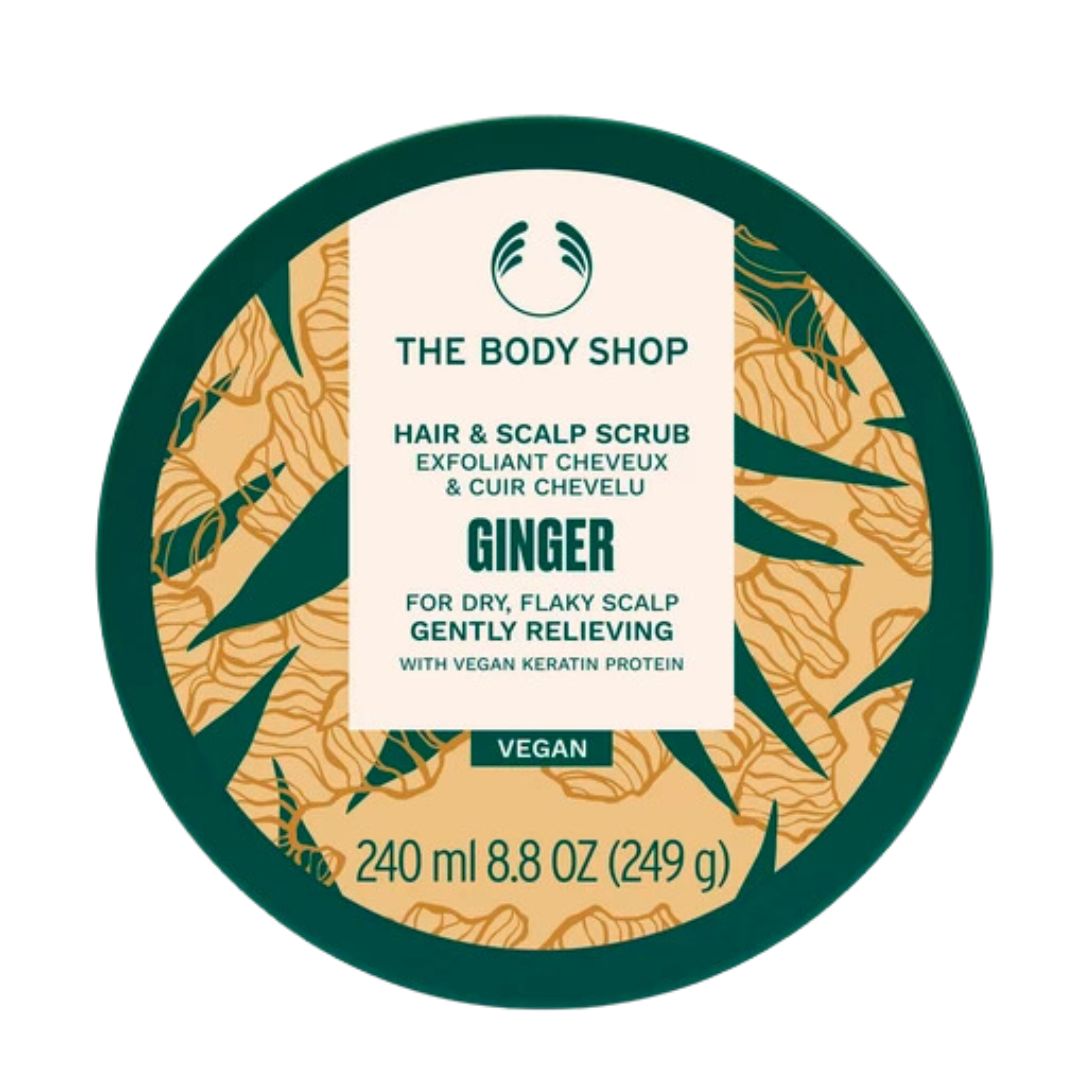
The Body Shop's Ginger range for hair is widely considered to be one of the best dandruff ranges in existence. The latest addition to the line up is this scalp scrub, and it's good. Not only does it soothe and relief irritated scalps, it also proves exceptional and removing flake-causing build up.
Tori is a freelance beauty journalist and contributor for Marie Claire. She has written for various titles, including Allure, Glamour, Elle, Refinery29, Brides, and more. Currently training to be a nail tech, Tori is a total nail enthusiast and always has time to talk all things nail art. When she’s not writing about beauty and testing products, Tori can be found walking her rescue dog Pip, drinking great coffee, and eating as many croissants as humanly possible.
- Rebecca Fearn
- Shannon LawlorExecutive Beauty Editor
-
 Jonathan Anderson is going to Dior Men
Jonathan Anderson is going to Dior MenHis debut collection will be this June
By Mischa Anouk Smith
-
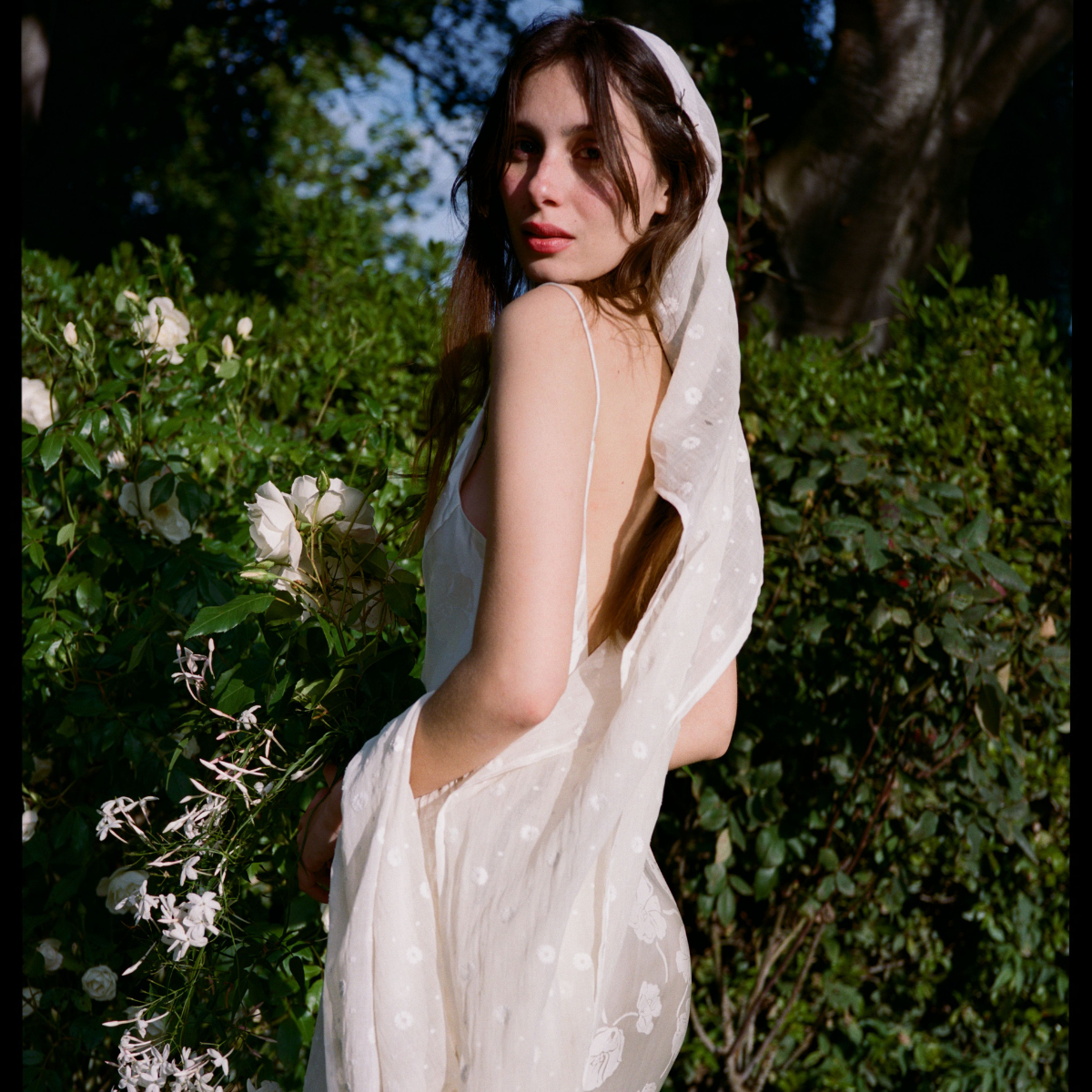 I'm a 2025 bride and these are the best affordable wedding dresses I've found
I'm a 2025 bride and these are the best affordable wedding dresses I've foundLess than £1,000 but still the height of chic
By Sofia Piza
-
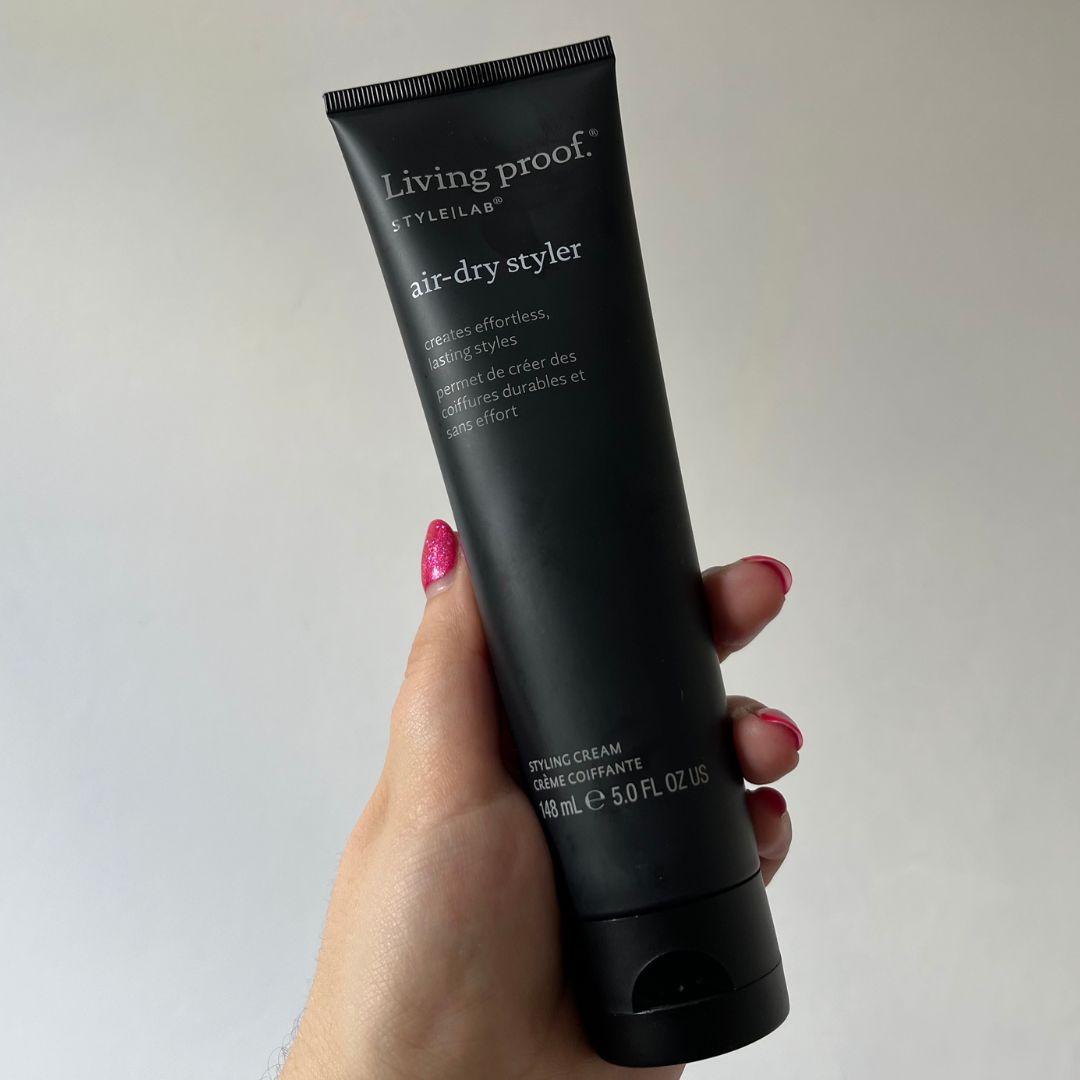 I haven't worn my hair completely natural for years, but this air-dry styling cream has made me love my waves again
I haven't worn my hair completely natural for years, but this air-dry styling cream has made me love my waves againI will never be without this
By Amelia Yeomans